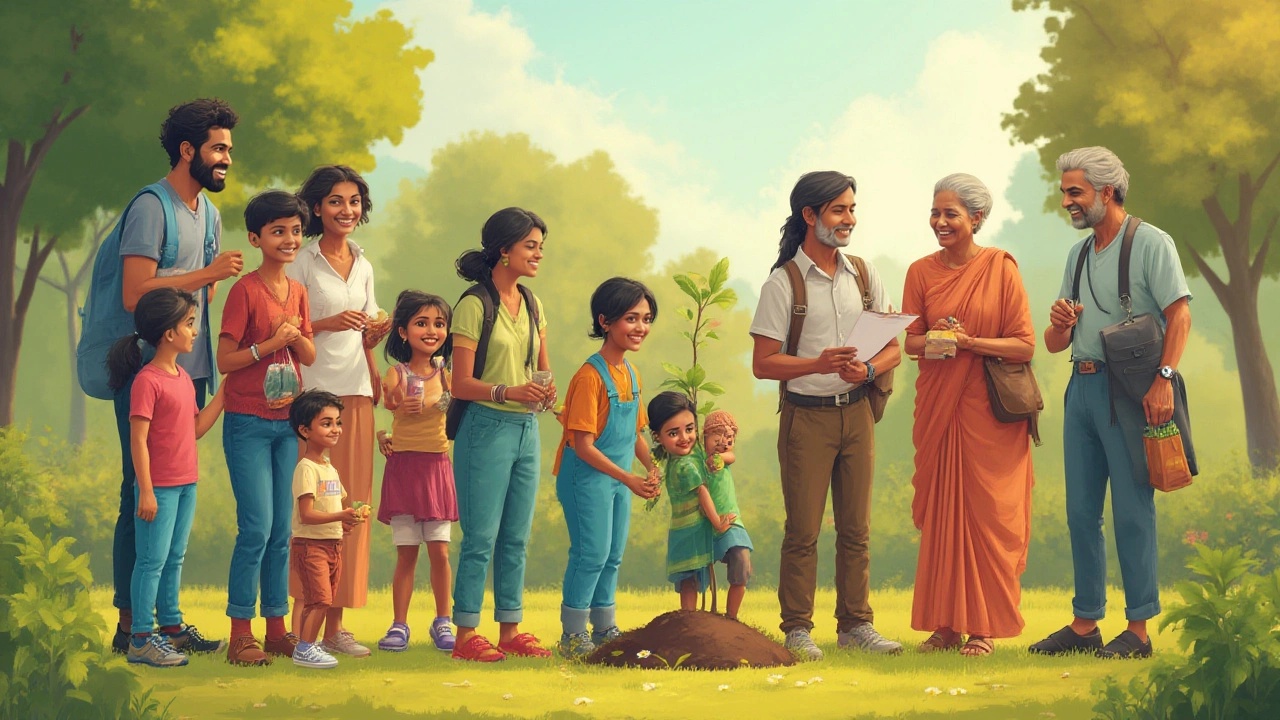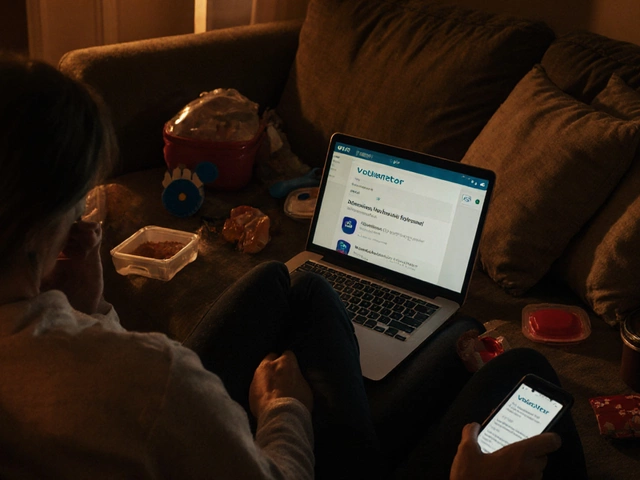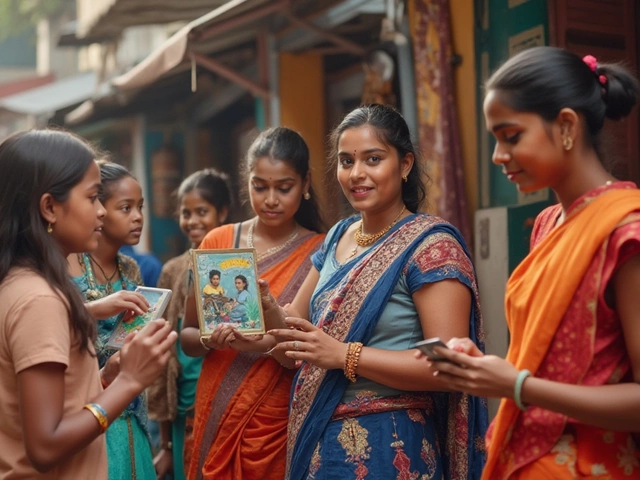Ever noticed how volunteering makes you tap into parts of yourself you barely realized were there? It’s almost like each new experience pulls a hidden card from your deck—suddenly, you find yourself negotiating with strangers, comforting someone in tears, or steering a group through total chaos with just a makeshift plan and a big smile. If you’ve ever volunteered, you probably know which skill leaps out for you—sometimes it’s a surprise, sometimes it’s exactly what you expected. The funny thing is, discovering your strongest skill while volunteering can change more than your resume. It can shift the way you see yourself and others, teaching you exactly what you bring to the table in any situation.
Decoding Volunteering Skills: What Makes a Skill 'Strong'?
When people talk about "strong" skills in volunteering, it’s not always about things like graphic design or CPR (though those absolutely count!). What people often mean is a personal strength, something that consistently helps them help others. Think communication, empathy, adaptability, or leadership. Skills like these cut across every volunteering setting, whether you’re serving meals at a shelter or leading beach cleanups.
Take communication, for example. In a 2023 survey by VolunteerMatch, 68% of regular volunteers listed "clear communication" as their top tool for navigating tricky on-the-spot challenges. Or consider adaptability: during 2020, as volunteer programs went virtual due to the pandemic, flexible thinkers found themselves thriving, learning new tech and pivoting plans with barely a hiccup. Adaptability wasn’t just helpful—it was non-negotiable when normal routines fell apart.
Here’s a kicker: a lot of people rate their strongest skill based on what others notice in them. After her third year organizing charity events, my friend Maria was always chosen as the team’s go-to person for last-minute snags. Turns out, her ability to stay calm and listen made her the ‘troubleshooter’—a skill she didn’t even know she had until others pointed it out.
Here’s a quick table highlighting what skills volunteers value most in 2024 based on data from HandsOn Network’s National Survey:
| Skill | % Volunteers Who Value It | Common Use |
|---|---|---|
| Empathy | 72% | Working with vulnerable groups |
| Communication | 68% | Coordinating teams & resources |
| Problem-solving | 63% | Responding to emergencies/changes |
| Leadership | 60% | Organizing projects/events |
| Adaptability | 57% | Virtual/Hybrid volunteering |
So, when you think about your strongest skill, look at those moments of ‘flow’—when things just work and you almost forget you’re even trying. That’s usually where your strength lies. And it’s not always the ‘loudest’ talent in the room. Quiet, steady skills like patience or reliability often power the most effective volunteers.
Identifying Your Standout Strength: It’s Closer Than You Think
You might think you know exactly what your top volunteering skill is. Or maybe you’re just guessing. The reality? Most of us underestimate or overlook our best assets because they come so naturally. If you’re not sure, ask yourself: what do people thank me for most at events? When did I feel totally ‘in my element’? Was I lifting spirits, making plans, fixing problems, or just quietly making sure everyone had what they needed?
Spotting your superpower may just take a little reflection. Keep a simple journal for a month the next time you volunteer somewhere—a few lines after each shift will do. Jot down moments that felt easy or rewarding, or when someone said “You’re so good at that!” Patterns jump out quick when you pay attention. For example, after doing food bank shifts, I noticed everyone came to me for tech help when the checkout system crashed. Problem-solving, apparently, was my hidden trick. I had no idea until I saw it happen again and again.
Another easy trick: get honest feedback from your volunteer buddies or supervisors. People on the ground with you see your strengths way clearer than you do. Don’t be shy about asking. I once asked a team lead what skill she noticed most in me, and she said, “You always find the calm in a storm.” That meant a lot coming from someone who’s seen me panic over mismatched socks.
Remember, your strongest skill isn’t always a "hard" skill with a certificate or badge. Sometimes being the person who makes others laugh during tough shifts is the magic people remember. Those soft skills stick, and sometimes they’re exactly what a volunteering gig needs most. Here are a few questions to help pinpoint your standout strength:
- When did I last help solve a tricky problem on the spot?
- Do people count on me to explain things or motivate others?
- Have others turned to me for support during stressful times?
- What kind of praise shows up on my evaluations or thank-you notes?
- Which volunteer tasks leave me feeling the most energized?
Once you figure out your strongest skill, try seeking out roles that let you flex those muscles. Love organizing chaos? Look for events that need a logistics whiz. Are you the person who always notices when someone’s having a tough day? Community care teams would kill for your empathy.

Turning Your Skill Into a Volunteering Superpower
So you’ve figured out that volunteering skills are more than bullet points on LinkedIn. What now? The best volunteers make their top skill work overtime. If your thing is empathy, you won’t just listen—you’ll make it your mission to spot who needs an extra hand before they ask. If you’re a planner, lean in and volunteer to lead a project. The more you use your strongest skill, the more you—and your team—benefit.
Volunteering is the safest place to practice and stretch your comfort zone. Outside of paid work, there’s so much room to experiment. Want to test your public speaking? Offer to run a training. Hoping to train new volunteers? Leverage your clear communication. Not only does this help your organization, but it’s a huge boost to personal growth. And every single shift, you get to see the result of what you bring, right there on the ground.
Here’s a pro tip: don’t stop at your best skill. Every now and then, try a gig that’s outside your usual lane. That’s where you’ll find your second- and third-best skills hiding out. And who knows, they might take over the top spot next year! Mixing things up keeps you sharp and prevents burnout—a fact backed by a 2022 study from the Johns Hopkins Center for Civil Society Studies, which found that volunteers switching roles every 6-12 months reported more satisfaction and longer-term engagement.
Want to hone your skill even further? Get some training. Tons of organizations offer free or low-cost workshops—think communication, digital literacy, trauma-informed care, leadership basics. Swap tips with other volunteers, join online forums, or just ask to shadow someone who does what you want to master. The more you experiment, the better equipped you’ll be for whatever comes your way.
Maybe the best kept secret is this: you don’t need to be dazzling to make a difference. A solid, reliable skill—used often and with heart—changes lives. You won’t always see the impact right away, but trust me: someone remembers that time you showed up and just made things work.
How to Use Skills to Elevate Your Volunteer Experience (and Life!)
Once you’re aware of your strongest skill, finding ways to use it more is a game-changer, even outside volunteering. Skills like problem-solving and empathy don’t shut off at the door. They end up making life in general a lot smoother. Need proof? In a 2024 survey by the United Nations Volunteers program, 84% of respondents said their best volunteering skills also helped them land jobs and handle everyday challenges with more confidence.
Here’s how to make the most of your standout talent:
- Get intentional: Before your next shift, decide you’ll lean into your top skill. Whether it’s organizing, cheering others on, or fixing tech, set a little challenge for yourself and notice the difference.
- Share your strength: Offer to mentor new volunteers or lead a training in your area of expertise. Teaching others reinforces what you know.
- Document your wins: Keep a record of cool moments or positive feedback. Not only is this a feel-good log, but it’s gold for future job or scholarship applications (and those end-of-year volunteer awards).
- Be open to growth: Welcome feedback and stay curious. As your confidence grows, your strongest skill might shift—and that’s a good thing.
- Take breaks when needed: Skills grow best with self-care. Burnout can flatten even the strongest superpower, so pace yourself, switch up tasks, and give yourself props for the good you’re doing.
Don’t be surprised if people start noticing your skill in new places. Friends might come to you for advice more often, or employers may ask you to run with a project at work. That’s the ripple effect in action—what you practice while helping others turns into real-world confidence you never saw coming.
The cool thing is, there isn’t one "best" skill for volunteering. The strongest skill is the one you have, use, and grow. Every skill—big or small, flashy or subtle—helps build the kind of community everyone wants to be part of. So go on, claim your spotlight, and let your skill change things for the better, in volunteering and everywhere else.






